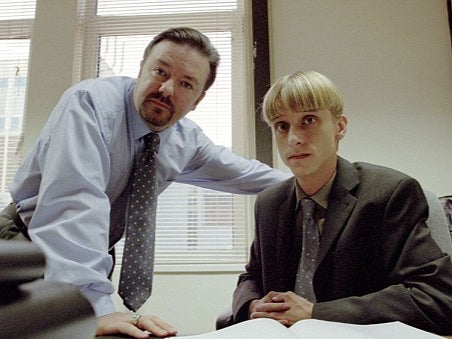‘You’ll never work in a place like this again. Fact’: The days of the traditional office are numbered
Restrictions imposed to prevent the spread of coronavirus have dealt a blow to the office, but one that employers can overcome if they deliver a new vision for the white-collar workplace, writes Phil Thornton


The office, the place of work made infamous by the eponymous BBC TV series and its anti-hero David Brent, has been through the most extraordinary experiment.
Faced with the threat of the rapid spread of coronavirus in spring last year, the government made it a criminal offence to leave home in order to go to the office if the job could be done from home – an edict that was most easily enforced in the typical town or city office.
In a country where only 5 per cent of employees worked from home before Covid-19, the proportion had increased to more than 45 per cent by April 2020, and it has remained high ever since. It was 37 per cent in May 2021, according to the Office for National Statistics (ONS), including those also doing a hybrid routine.
From 19 July, the government rescinded its ban on office working. Some employers, such as US bank JPMorgan Chase, have insisted all workers should return to their desks. Closer to home, Paul Swinney, a director at the think tank Centre for Cities, has forecast a return to the office.
But many employers, such as the Bank of England and HMRC, have taken a more flexible approach. The latter view is correct for two reasons. Firstly, some workers will feel safer working from home, and in the wake of the pandemic, only the foolish employer would seek to override such concerns.
Secondly, the office has changed markedly since the arrival of the open-plan office after the Second World War. Technological innovation has meant co-workers no longer need to be at adjacent desks or in windowless meeting rooms to collaborate.
Nevertheless, there is still a sharp divide between what bosses and their employees want.
Nearly two-fifths of all British businesses expect 75 per cent of their workforce to be at their normal place of work, while 37 per cent expect their workforce to return to their normal place of work within the next three months, according to an ONS survey in April. Indeed, a survey of 2,500 UK workers in June 2021 showed that more than 70 per cent of UK employees want to work from home at least two days a week.
The share demanding a full five days at home jumped from 19 per cent in January to 23 per cent in May.
The advantages for some employees of working from home – usually those who are older, in more senior roles, or who own larger properties – have been listed frequently: avoiding the commute, flexibility in balancing work and home responsibilities, and a quiet office.
Equally the reasons why younger workers are keener to get back are well known: the difficulty of working on a shared kitchen table, disconnection from the heart of the company, loneliness and boredom. But while some will want to go back, according to research based on a survey of 2,500 employees, at least a “large plurality” of employees will be extremely hesitant to return to the office post-pandemic, making it harder still for large firms to get back to the old style of working.
The trend away from the bog-standard office, which was already under way, needs to be accelerated. Employers were already aware that they needed to offer collaborative spaces, beanbags and fresh food to attract millennials.

Now they will have to adapt to a workforce that wants a flexi-office, as well as demands from different groups of employees to make use of the office at different times. Rather than saying the office set-up is immutable because things have always been done this way, employers will have to recognise that presenteeism is now a relic of the pre-Covid age.
Other parts of the economy will have to adapt. Train companies are already offering flexible season tickets enabling eight days of travel in a 28-day period.
Bars and restaurants will also face a challenge. The shift to working from home will directly reduce spending in major city centres by at least 5-10 per cent relative to the pre-pandemic situation, according to one study. Maybe Tuesday to Thursday will become the peak of post- or mid-work dining.
Landlords may come under pressure if tenants cut their floorspace, potentially leaving some vulnerable to a financial crunch.
Imaginative employers should be encouraged and helped by ministers to find a way through to the new flexi-office. If the academic research is right, work will become more pleasurable and more productive, benefitting the wider economy. People will go into the office because they can, rather than because they must.
When David Brent was at his peak, the office was an object of contempt and even dread for many of its occupants. Perhaps its rejuvenation in the wake of the coronavirus pandemic will finally give truth to one of his famous claims: “You will never work in a place like this again. It’s brilliant. Fact.”
Join our commenting forum
Join thought-provoking conversations, follow other Independent readers and see their replies
Comments

Bookmark popover
Removed from bookmarks